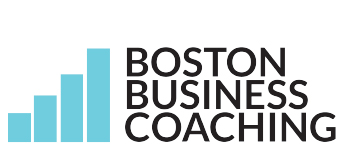
15 Jul The Courage to Challenge Yourself
“If you are the smartest person in the room, then maybe you are not in the right room.” ~Brian Tracy
I love the above quote by Brian Tracy. I like it because it says a lot about courage. It makes you stop and wonder about how much you are willing to challenge yourself and grow.
Compare Yourself To People Smarter, Not Less-Smart, Than You
When my son was a teenager, he used to rationalize away his un-thought out negative behaviors, as all teenagers do, by always pointing out the people his age who he claimed has much worse behavior than him, and how “lucky” we were to have him as a son, because his behavior was not as bad as theirs. My wife and I always retorted by telling him to compare himself to friends that behave appropriately, not the dysfunctional ones. We also encouraged him to hang out with kids who had the qualities we wanted him to emulate.
I have learned over the years that who we are as individuals, and how we are perceived by others, is very often tied to the people we surround ourselves with. If you are always the smartest person in the room, you are often not learning anything. You are not always being challenged, so you may never grow, or fulfill your potential.
How Do The Smartest People Get Smarter When Surrounded By Those Less-Smart?
Assuming you want to get smarter, grow professionally, grow emotionally, grow socially, or academically, you must be willing to challenge yourself.
Surround Yourself With People Smarter Than You In Some Way
I believe that there are many types of intelligence and that we can grow in many of these areas if we just challenge ourselves. An interesting and controversial theory of multiple intelligences was proposed by Howard Gardner in his 1983 book Frames of Mind: The Theory of Multiple Intelligences as a model of intelligence that differentiates it into specific (primarily sensory) “modalities”, rather than seeing it as dominated by a single general ability.
Gardner chose nine abilities that he felt were types of intelligence: spatial, linguistic, logical-mathematical, bodily-kinesthetic, musical, interpersonal, intrapersonal, and naturalistic. He later suggested that existential might also be worthy of inclusion.
- Naturalist Intelligence (Nature Smart)
- Musical Intelligence (Musical Smart)
- Logical-Mathematical Intelligence (Number/Reasoning Smart)
- Existential Intelligence (Sensitivity and capacity to tackle deep questions about human existence)
- Interpersonal Intelligence (People Smart)
- Bodily-Kinesthetic Intelligence (Body Smart)
- Linguistic Intelligence (Word Smart)
- Intra-personal Intelligence (Self Smart”)
- Spatial Intelligence (Picture Smart)
Surround Yourself With People Who Have Qualities You Want
I believe that by surrounding yourself with people smarter than you in any of these areas mentioned above, you are more likely to learn these skills. Maybe we do this already on an unconscious level. Do you surround yourself with people more charismatic than you, funnier, more technologically savvy, successful, more artistic, or introspective than you? If so, you may be challenging yourself.
Determine your area for growth and follow/connect with people online, join a group online or go to an in-person meet up with those who are just better at the skill than you. After all, there is very little to be gained by being the smartest person in the room.
Ask People Smarter Than You Questions
My son Alex, now 21 years old and just started taking a summer Chemistry class at a local college. He told us that he is the only student in the class who asks questions in the class, and the only one who answers difficult questions correctly when asked by the teacher. He feared the teacher might “dumb down” the material as a result and he might miss out. To keep the class interesting and challenging for himself he told me he is starting to ask the teacher some difficult and interesting questions in class. When asked if it helped in any way, he told me that the teacher likes his questions because the teacher is happy knowing at least one student is interested in the topic. He said it also gave the teacher an opportunity to show his knowledge and passion for the topics. Alex also felt that the other students in class may have had the same questions, or would be interested in some of the answers. I was proud of my son for taking our advice and not just sitting back and being the smartest one in the class, but using his smarts to challenge himself, gain more knowledge and make the class more interesting.
Coaching and Therapy to Challenge Oneself
Both coaching and therapy are ways to challenge yourself to think “outside the box” or in ways that you have not yet considered. The primary functions of therapy are to help alleviate symptoms or behavioral patterns (fix or heal something). The focus of the therapist is to create a context in which healing may take place.
While the primary function of coaching is to create a context in which life and performance enhancement may take place. Coaching assumes that the client is already high functioning and is capable of taking consistent action steps towards their life vision. That doesn’t mean that clients with a psychiatric diagnosis cannot also benefit from coaching, However, to be considered candidates for coaching they must demonstrate the ability to make ongoing progress toward their coaching goals and make sure to also actively manage any symptoms.
Some people choose to engage in both counseling and coaching at the same time, however, I feel that to get the most out of coaching, any symptoms that might get in the way of coaching progress should be addressed in counseling first.
Whether one chooses counseling, coaching, or both, it takes a lot of courage to speak with a stranger about your personal or professional life, your challenges, and to make yourself vulnerable. If done correctly, the coaching or therapy milieu should not be one in which you feel that you are not the smartest person in the room. If done correctly, the therapist or coach should focus on identifying and building on your strengths and areas of intelligence; helping you to gain awareness, develop new skills, and fill gaps in knowledge about yourself and others. However, the bottom line is that only by challenging yourself can you truly make gains in improving your situation and begin to move towards living a life filled with meaning, direction, and fulfillment.



